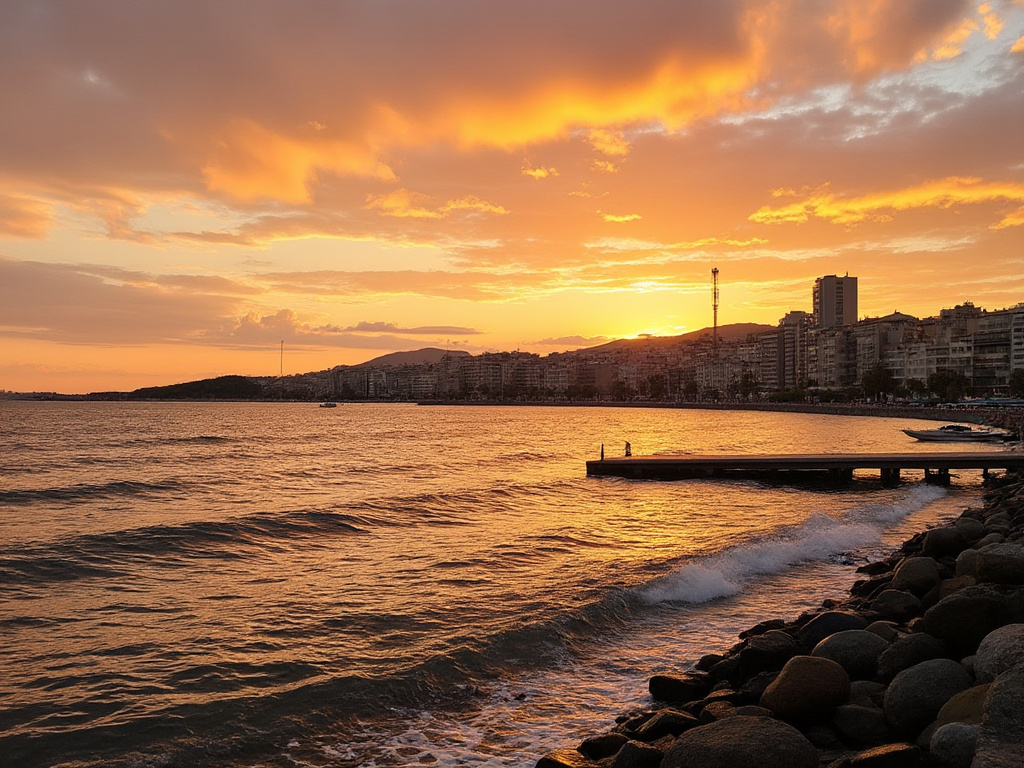For TESOL teachers and language enthusiasts, Thessaloniki, Greece, is a treasure trove of history, culture, and culinary delights. We invited experienced language teacher Vicky Papageorgiou (@vpapage) to give us a personalized introduction to this captivating city. With nearly 20 years of teaching experience, Vicky’s insights offer a unique perspective for travelers and educators alike.
A Must-Visit Landmark in Thessaloniki
Shelly: Which landmark is a must for visitors?
Vicky: Travelers should definitely visit the old fortress up on the hill and the nearby monastery, built at the very spot where St. Paul preached during his visit to Thessaloniki. The view from up there is absolutely stunning, with a panorama of the city harbor that will take your breath away!
Thessaloniki’s old fortress, also known as the Heptapyrgion or “Eptapyrgio,” is a site where history and beauty converge. The fortress, which dates back to Byzantine times, has served various purposes over the centuries, from fortifications to a prison. Today, it’s a serene spot to explore Thessaloniki’s past and enjoy scenic views. For TESOL teachers visiting the city, the fortress provides an inspiring backdrop for discussing historical narratives with students or sparking English conversations about travel experiences.
Local Flavor: Thessaloniki’s Culinary Delights
Shelly: What is a popular local dish?
Vicky: Mussel pilaf is a must-try! It’s a local favorite and a delicious way to experience the flavors of the region. You can even watch it being made in this video.
Greece is known for its vibrant and flavorful cuisine, and Thessaloniki’s culinary heritage doesn’t disappoint. Mussel pilaf, or “midopilafo,” is a savory dish combining fresh mussels with rice, herbs, and spices—a celebration of Mediterranean flavors. Introducing dishes like mussel pilaf into TESOL lessons can open doors to discussions about food, culture, and traditions, making it a wonderful topic for conversational practice.
A Favorite Activity for English Learners
Shelly: Describe an activity your English learners enjoy!
Vicky: My students love learning about different cultures and customs. They find it fascinating to compare customs from their own country with those of other places.
For TESOL educators, sharing customs from around the world can be an engaging and educational classroom activity. Discussing cultural differences helps build understanding and curiosity in students, offering a way to explore topics like festivals, foods, traditions, and beliefs. Teachers can encourage students to share their own cultural backgrounds, fostering a classroom environment rich in diversity and mutual respect.
About Vicky Papageorgiou
With a career spanning nearly two decades, Vicky Papageorgiou is a seasoned foreign language teacher specializing in adult education. She has studied in Greece, Italy, and the UK and contributed to the McLuhan Program in Culture and Technology at the University of Toronto, Canada. Currently based in Thessaloniki, Vicky serves as an Adjunct Lecturer at AMC College and as a co-editor for ELTA Serbia Publications. Her dedication to language teaching and cross-cultural understanding makes her a valuable voice in the TESOL community.
Final Thoughts
Thank you, Vicky, for sharing your insights and for giving us a window into the heart of Thessaloniki! For TESOL teachers, exploring this city is more than a travel experience—it’s an opportunity to connect with Greek history, food, and customs in ways that can be brought back to the classroom. Whether you’re introducing your students to mussel pilaf, discussing the views from Thessaloniki’s old fortress, or engaging in cultural comparisons, the city of Thessaloniki provides a rich tapestry for language learning and exploration.



